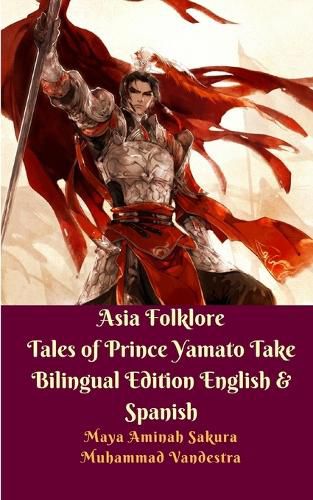Asia Folklore Tales of Prince Yamato Take Bilingual Edition English and Spanish
Muhammad Vandestra

Asia Folklore Tales of Prince Yamato Take Bilingual Edition English and Spanish
Muhammad Vandestra
This title is printed to order. This book may have been self-published. If so, we cannot guarantee the quality of the content. In the main most books will have gone through the editing process however some may not. We therefore suggest that you be aware of this before ordering this book. If in doubt check either the author or publisher’s details as we are unable to accept any returns unless they are faulty. Please contact us if you have any questions.
The insignia of the great Japanese Empire is composed of three treasures which have been considered sacred, and guarded with jealous care from time immemorial. These are the Yatano-no-Kagami or the Mirror of Yata, the Yasakami-no-Magatama or the Jewel of Yasakami, and the Murakumo-no-Tsurugi or the Sword of Murakumo. Of these three treasures of the Empire, the sword of Murakumo, afterwards known as Kusanagi-no-Tsrugugi, or the grass-cleaving sword, is considered the most precious and most highly to be honored, for it is the symbol of strength to this nation of warriors and the talisman of invincibility for the Emperor, while he holds it sacred in the shrine of his ancestors. Nearly two thousand years ago this sword was kept at the shrines of Ite, the temples dedicated to the worship of Amaterasu, the great and beautiful Sun Goddess from whom the Japanese Emperors are said to be descended. There is a story of knightly adventure and daring which explains why the name of the sword was changed from that of Murakumo to Kasanagi, which means grass clearing. Once, many, many years ago, there was born a son to the Emperor Keiko, the twelfth in descent from the great Jimmu, the founder of the Japanese dynasty. This Prince was the second son of the Emperor Keiko, and he was named Yamato. From his childhood he proved himself to be of remarkable strength, wisdom and courage, and his father noticed with pride that he gave promise of great things, and he loved him even more than he did his elder son. Now when Prince Yamato had grown to manhood (in the olden days of Japanese history, a boy was considered to have reached man’s estate at the early age of sixteen) the realm was much troubled by a band of outlaws whose chiefs were two brothers, Kumaso and Takeru. These rebels seemed to delight in rebelling against the King, in breaking the laws and defying all authority.
This item is not currently in-stock. It can be ordered online and is expected to ship in 7-14 days
Our stock data is updated periodically, and availability may change throughout the day for in-demand items. Please call the relevant shop for the most current stock information. Prices are subject to change without notice.
Sign in or become a Readings Member to add this title to a wishlist.


